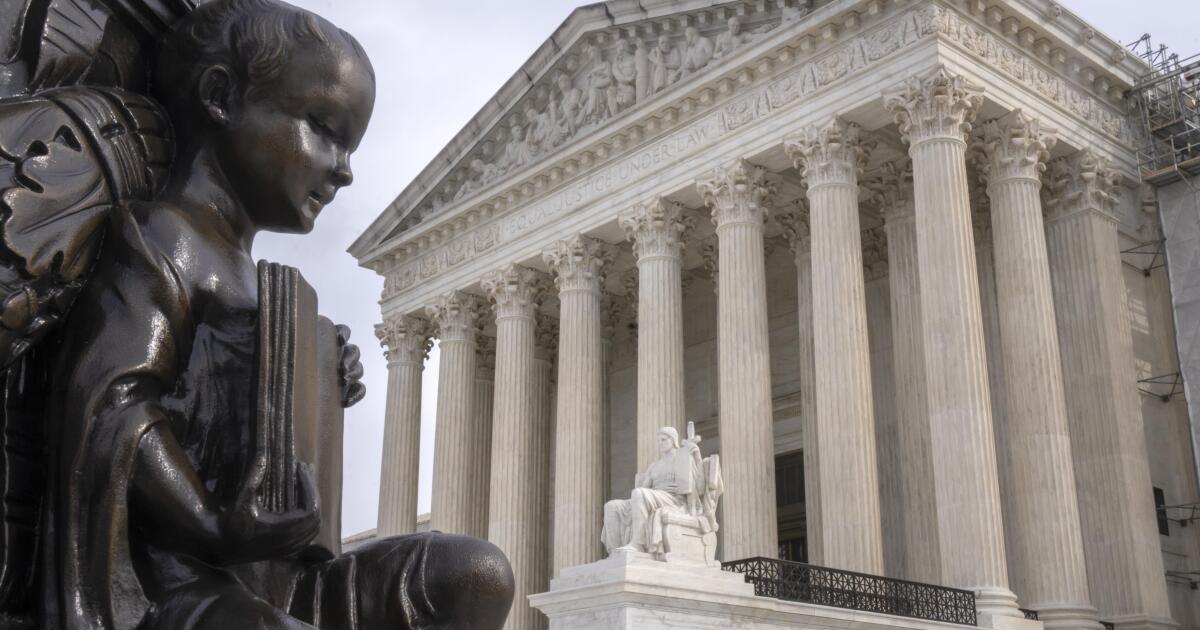Supreme Court urged to block California laws requiring companies to disclose climate impacts
WASHINGTON — The U.S. Chamber of Commerce and other business groups urged the Supreme Court on Friday to block new California laws that will require thousands of companies to disclose their emissions and their impacts on climate change.
One of the laws is due to take effect on Jan. 1, and the emergency appeal asks the court to put it on hold temporarily.
Their lawyers argue the measures violate the 1st Amendment because the state would be forcing companies to speak on its preferred topic.
“In less than eight weeks, California will compel thousands of companies across the nation to speak on the deeply controversial topic of climate change,” they said in an appeal that also spoke for the California Chamber of Commerce and the Los Angeles County Business Federation.
They say the two new laws would require companies to disclose the “climate-related risks” they foresee and how their operations and emissions contribute to climate change.
“Both laws are part of California’s open campaign to force companies into the public debate on climate issues and pressure them to alter their behavior,” they said. Their aim, according to their sponsors, is to “make sure that the public actually knows who’s green and who isn’t.”
One law, SB 261, will require several thousand companies that do business in California to assess their “climate-related financial risk” and how they may reduce that risk. A second measure, Senate Bill 253, which applies to larger companies, requires them to assess and disclose their emissions and how their operations could impact the climate.
The appeal argues these laws amount to unconstitutional compelled speech.
“No state may violate 1st Amendment rights to set climate policy for the Nation. Compelled-speech laws are presumptively unconstitutional — especially where, as here, they dictate a value-laden script on a controversial subject such as climate change,” they argue.
The emergency appeal was filed by Washington attorney Eugene Scalia, a son of the late Justice Antonin Scalia.
The companies have tried and failed to persuade judges in California to block the measures. Exxon Mobil filed a suit in Sacramento, while the Chamber of Commerce sued in Los Angeles.
In August, U.S. District Judge Otis Wright II in Los Angeles refused to block the laws on the grounds they “regulate commercial speech,” which gets less protection under the 1st Amendment. He said businesses are routinely required to disclose financial data and factual information on their operations.
The business lawyers said they had appealed to the U.S. 9th Circuit Court of Appeals asking for an injunction, but no action has been taken.
Shortly after the chamber’s appeal was filed, state attorneys for Iowa and 24 other Republican-leaning states joined in support. They said they “strongly oppose this radical green speech mandate that California seeks to impose on companies.”
The justices are likely to ask for a response next week from California’s state attorneys before acting on the appeal.
